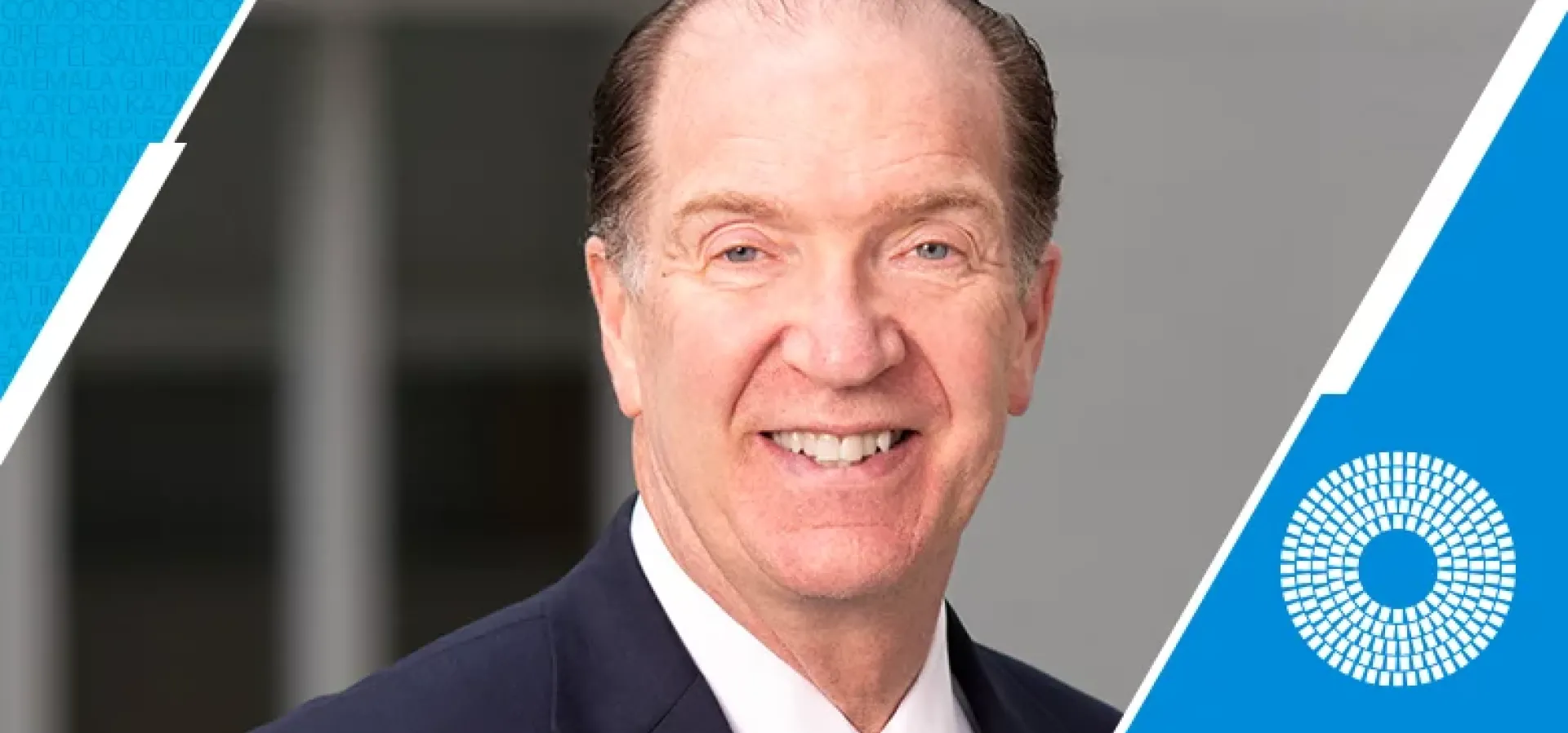
Statement | July 15, 2022
Remarks by World Bank Group President David Malpass to G20 Finance Ministers and Central Bank Governors on the Global Economy and Health Agenda
Session 1: Global Economy
Thank you, Minister, both for today’s meetings and for your leadership during a time of crisis. The COVID-19 pandemic and now Russia’s invasion of Ukraine have caused a humanitarian and economic catastrophe. Recessions are likely in many countries. This will put heavy new burdens on fiscal deficits and debt markets.
Ukraine is severely affected. The World Bank Group has been using all our tools to mobilize emergency financing for Ukrainians. More than $6 billion of this financing has already been disbursed.
The danger for other developing countries is acute due to inflation, currency depreciation, rising debt service costs, and the collapse of international reserves. These problems are severely constraining future growth and deepening inequality and fragility. The diversion of natural gas to Europe presents grave obstacles to developing country production of electricity, food, and fertilizer.
We know many of the steps that are needed to reduce these risks.
There needs to be a dramatic increase in global supplies of food, fertilizer, and energy. This includes explicit steps to increase production of natural gas, which is critical for the fertilizer supply chain and electricity grids.
Countries around the world need to reduce and avoid export restrictions, import restrictions, and untargeted subsidies.
As central banks raise interest rates, it will be especially important to improve regulatory policy and the maturity mismatch in ways that encourage production and investment in supply chains.
It is also vital to implement debt relief efforts.
There needs to be concerted new efforts on all these challenges.
On food insecurity, we are working closely with other international organizations and have just released a joint statement with the IMF, WTO, FAO, and WFP. We call on countries to strengthen safety nets, facilitate trade, boost production, and invest in resilient agriculture.
Kristalina and I just sent a joint note on this to G20 members.
The World Bank Group is convening with the G7 Presidency the Global Alliance for Food Security and invites all of you to join.
And we have made available $30 billion to support countries in tackling food insecurity. This is a key part of our five-quarter plan for $170 billion in financing through June 2023.
Thank you.
Session 2: Global Health Agenda
Thank you, Minister. The human impact of COVID-19 has been devastating. Delivering and administering vaccines remains a constant task, and we also need to build stronger health systems that are better prepared for future crises.
The World Bank Group has mounted the fastest and largest response in our history, reaching over 100 countries. Since April 2020, our financing has reached $272 billion, including $53 billion in the most recent quarter.
COVID-19 has highlighted the pressing need for action to build stronger health systems and mobilize additional resources for Pandemic Prevention, Preparedness, and Response (PPR). Investing now will save lives and, over the medium term, will save resources.
With broad support from the global community, the World Bank is proceeding quickly to establish a Financial Intermediary Fund (FIF). This new PPR FIF will complement efforts to strengthen health systems in developing countries and regions.
With your support, we have worked rapidly with WHO and other partners to develop this new FIF. Thank you everyone for the helpful feedback and broad support.
On June 30, the World Bank Board approved the proposal to establish the PPR FIF at the Bank, and for the World Bank to support the FIF as Secretariat, Trustee, and Implementing Entity. WHO will be a central technical lead on the FIF – including providing support to the technical advisory panel – lend staff to the secretariat, and be eligible as an implementing agency.
We’re working on the governance arrangements, including a link to the G20, the voice of beneficiaries, and the inclusion of global health agencies as implementing entities.
Priority areas identified to complement work by existing institutions include disease surveillance; laboratory systems; emergency communication, coordination and management; critical health workforce capacities; and community engagement.
We have already established an Interim Secretariat at the Bank to facilitate the setting up of the FIF. The secretariat is supporting partners to develop the design, governance, and operational arrangements of the PPR FIF, building on lessons and good practices from other FIFs and global health efforts.
We are proceeding expeditiously to set up the FIF by September, keeping in mind the key design principles and consultations.
We are encouraged that $1.1 billion in financial commitments have already been announced for the PPR FIF including contributions from the United States, the European Union, Indonesia, Germany, the UK, Singapore, United Arab Emirates, the Gates Foundation, the Wellcome Trust, and the Rockefeller Foundation. Many countries have announced their intention to pledge resources to the FIF.
We look forward to more countries joining this partnership, to progress in health preparedness and to working together on this critical agenda.
Thank you.
*Originally published: https://www.worldbank.org/en/news/speech/2022/07/15/remarks-by-world-bank-group-president-david-malpass-to-g20-finance-ministers-and-central-bank-governors-on-the-global-ec
Last Updated: February 7, 2025

